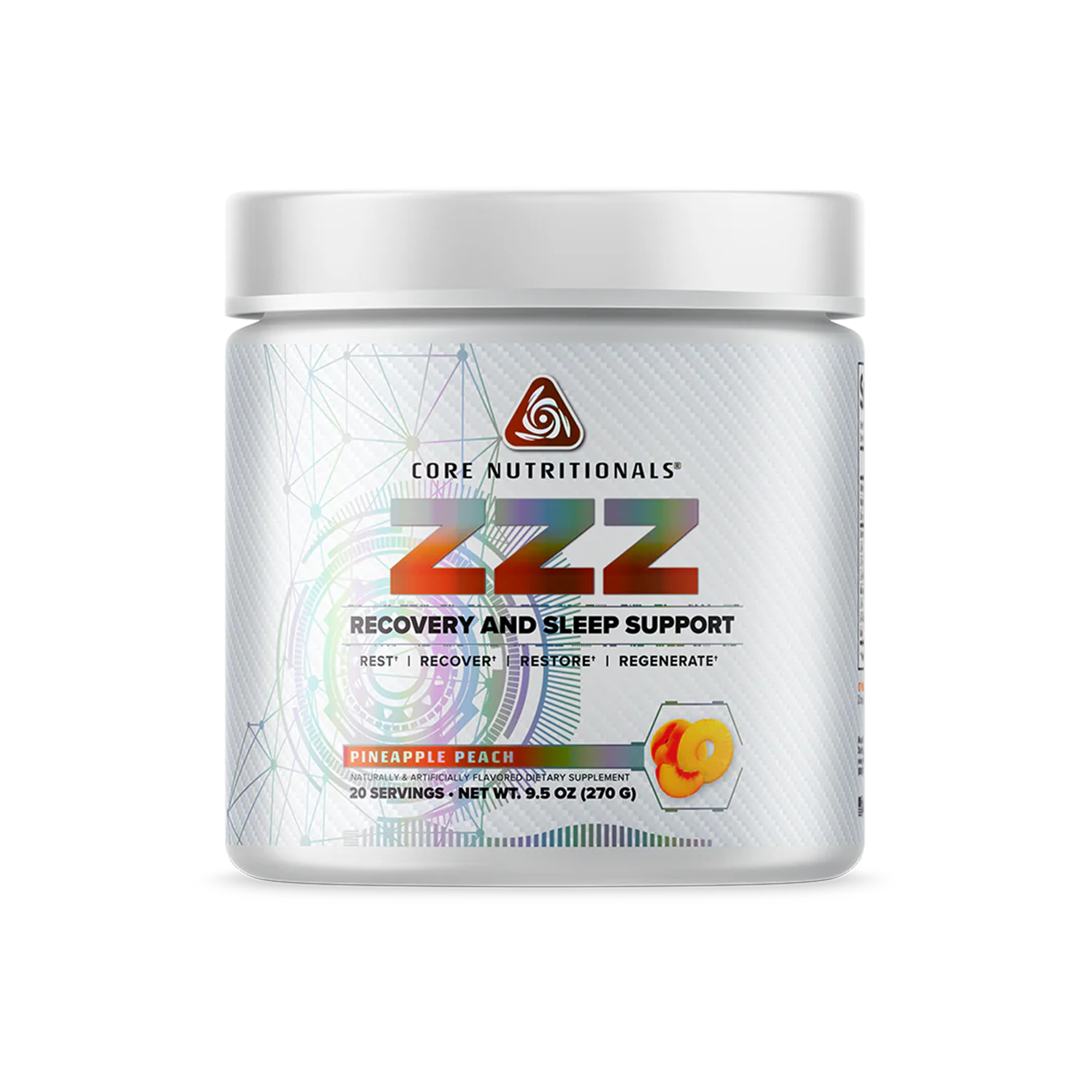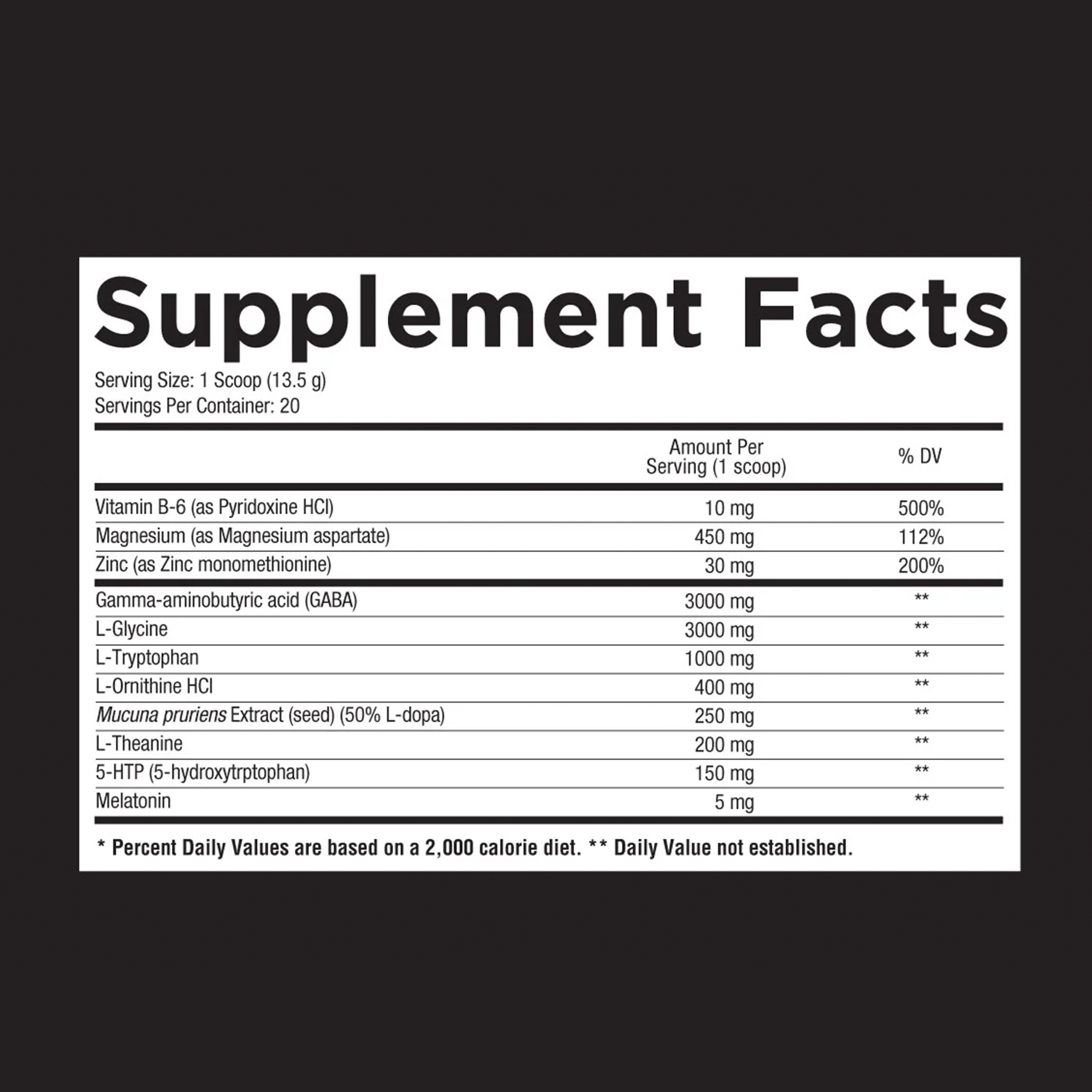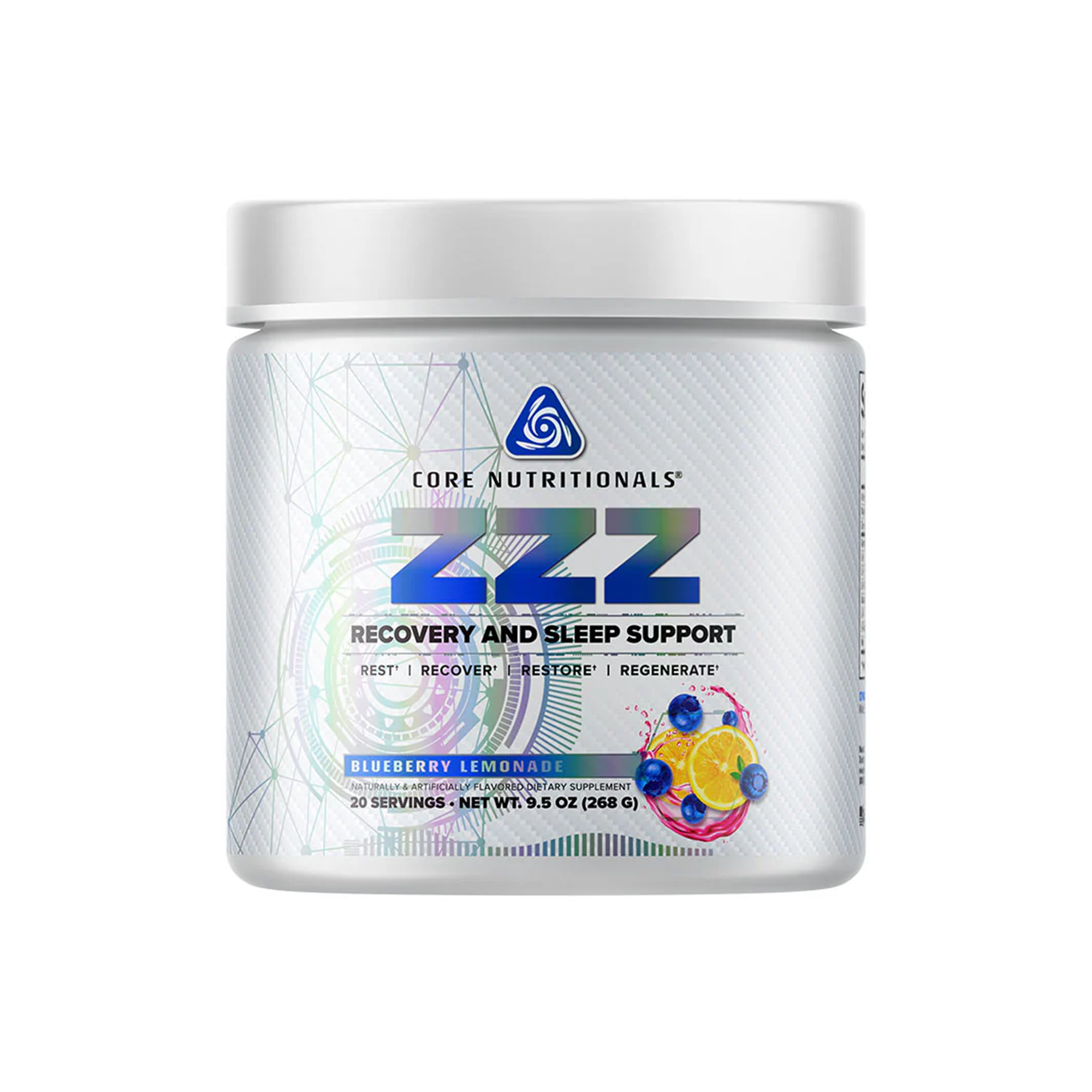


Core Nutritionals ZZZ - Sleep Aid & Recovery
You know the feeling: the weights feel heavy, the treadmill feels painfully slow, and every minute you’re looking up at the clock wondering when the workout is going to be over. Why? It’s not your diet – your food journal is so detailed it makes engineers blush. It’s not your supplementation – you are using the entire Core lineup like every smart trainer does. Ah, that’s right. Last night was a brutal mashup of tossing and turning set to the tune of your spouse’s snoring and the neighbor’s dog barking.
If recovery is the key to success, then say “hello” to the locksmith. Core ZZZ is a perfectly-designed product with a single goal in mind: maximizing your recovery. We have included only the best and most effective recovery agents, at the proper serving sizes, to take the guesswork out of a good night’s rest. We have also specifically chosen these ingredients for the pathways they target, ensuring that every possible physiological pathway for recovery is covered.
No more tossing nights and no more wasted workouts – put recovery at the top of your list by putting Core ZZZ at the center of your supplement lineup.




